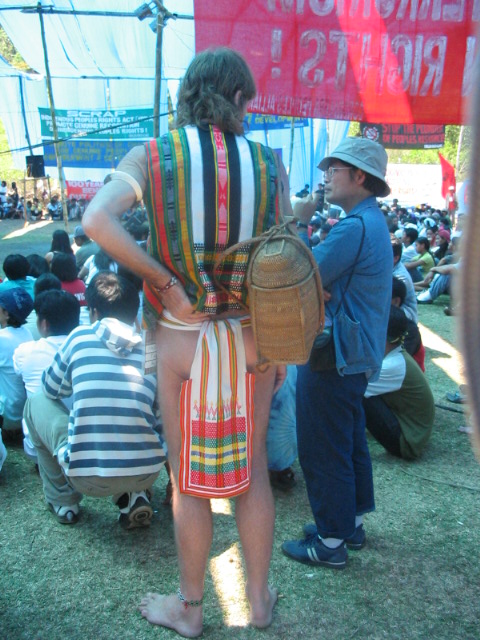This blog piece grew from my comment on a humorous post of an FB friend about the bilingualism that comes so naturally to young children growing up in bilingual environments. The humor arose from a meme triggered by a viral news piece, about Princess Charlotte of Wales speaking two languages at age two—to which someone retorted that this was usual among immigrant children but didn’t hug the headlines because they were poor (unlike children of famous royalty).
That observation applies not just to children of immigrants but to sizeable populations in some other countries as well, such as the Philippines. Many Filipinos, and probably the majority by this time, are at least bilingual in Pilipino and another language, which would usually be English in addition to their mother tongue (i.e., 3rd or even 4th language) if they grew up in non-Tagalog-speaking provinces or households.
In fact, I’ve been thinking about this peculiar Philippine language situation for many years now, and had wanted to write a blog piece about it since maybe 2002 when I started to get serious about this IRAIA website. The question I pose now: Is our bilingualism (or multilingualism) as Filipinos to our advantage or not? The answer, for me, is a lot more complex than a mere Yes or No.
1. I look at languages as our minds’ operating systems, an analogy to the OS of a computer. (Disclosure: I first heard this insight from my late brother Roberto Verzola, maybe around 1997-98. He and I had many discussions about its implications in education.)
2. So if your mind can do a complete shift from using one OS to another one installed in it, as it were, then you do enjoy absolute advantage. You can leverage your bi/multilingualism for doing effective work in a much wider range of environments and with a much wider range of intellectual tools.
3. But here’s the problem: The OS shift must be complete and safely insulated in computer memory and I/O, so that one OS won’t ride roughshod over (and thus disrupt) the processes being run by the other OS, or worse, wreck the underlying file systems. (It happened to me once, believe me, while carelessly fiddling with SuSe Linux partitions as a newbie back in 1999.)
In language terms: Dapat pag nagsalita ka sa Pilipino, o sa Ingles, sikapin mong maging konsistent sa gamit ng nasabing lengwahe. Pag Pilipino, deretsong Pilipino. Pag Ingles, deretsong Ingles. Dapat iwasan yung walang-habas na “code-shifting” like what I’m doing ngayon, dahil it will make sira and wasak so many OS functions, both internally (your mental processes) and externally (how you communicate them).
4. Now, to be realistic, in today’s world of increasing convergence and hardware sophistication (like how your brain’s language and cognitive function really work), it’s increasingly impractical to 100% insulate the various OS’s when they run on the same hardware. The best solution is to use emulators.
In terms of bilingualism: (a) First make sure you have a stable and robust native OS (fluency in your mother tongue). Then, as needed, (b) code-shift to another language, but in very big chunks — like entire papers, articles, speeches, long chains of sentences in daily speech.
I mean, DO NOT CODE-SHIFT in eclectic, chaotic, coniotic Taglish-style ways where the code-shifting is within sentences or even within phrases and words. Ever been stuck with our hideous dilemma of, e.g., choosing between “tinry/triny/ni-try”? (When forced , I use “nag-try“.) That’s just the tip of the monstrous iceberg in navigating (especially reading or editing) Taglish.
Using loan words from English (especially in science and tech) where there’s no exact and easily absorbed native equivalent is definitely acceptable. But it must follow certain standards in orthography to avoid ambiguity. I mean, psychology vs saykoloji vs sikolohiya?
Additional note: I read up on code-shifting recently, and realized that there are so many interpretations about what it really means, or its various forms (e.g. intra-sentential code-shifting), or why do people do it, and what advantages or benefits does it confer to the code-shifters.
5. At dito malaki ang problema natin bilang mga Pilipino. Oo, may bentahe tayo ng pagiging bilingual sa Ingles, Tagalog/Pilipino, at posibleng 1-2 pang wikang rehyunal. Pero dahil hirap makahabol ang tinawag na “intellectualization process” ng Pilipino kumpara sa Ingles, madalas na obligado tayong mag-codeshift in the most convenient and eclectic way (like what I’m doing ngayon dito), sa paraang barado na o grabeng napapahina ang kapasidad ng ating inang wika sa sarili nitong pag-unlad.
Halimbawa, sa Netherlands, karamihan ng tao (liban sa mga super-tanders na edad 70-pataas) ay matatas kapwa sa Dutch at Ingles, at (sa ilang munisipalidad nito) pati sa German o Pranses.
Pero kapag nagsalita sila ng Dutch, na syang default sa eskwela, workplace, komersyo, at gubyerno, e halos purong Dutch, nahaluan lang ng mangilan-ilang tech terms na mas komon na sa Ingles. Halos lahat ng website at signboards nila, packaging sa groceries, manuals, atbp. ay sa Dutch.
Pero pag hiniling mo (o napansin nila) na sa Ingles sana kayo mag-usap dahil yun lang ang gamay mo, madali silang mag-shift ipromptu sa halos perpektong Ingles. Aabutan ka nila ng product manuals o brochures na Ingles. At syempre, sa karamihang website at interactive kiosks nila (hal. sa self-checkout counters, ticket machines) e may opsyon na Ingles.
Parang ganyan din yata sa Switzerland, kung saan maraming tao ay marunong ng French, German, at Italian — pero hindi sa rambol na paraan. O sa Quebec, vis-a-vis Pranses at Ingles.
Sana ganun din tayo sa Pilipinas. Wag tayo maging kampante na komo bi- o trilingual tayo ay awtomatikong mas superyor na tayo. Ang susi pa rin, sa tingin ko, ay magpaunlad ng isang robust, intellectualized native/national language (Pilipino nga), tiyaking nagagamit ito sa lahat ng antas ng diskurso (dagdag pa ang MTB-MLE, na may namumukod na halaga sa mga eskwela), at ka-parallel nito, paunlarin din ang usage natin sa Ingles at mga lokal/rehyunal na wika. ##
Follow @junverzola

